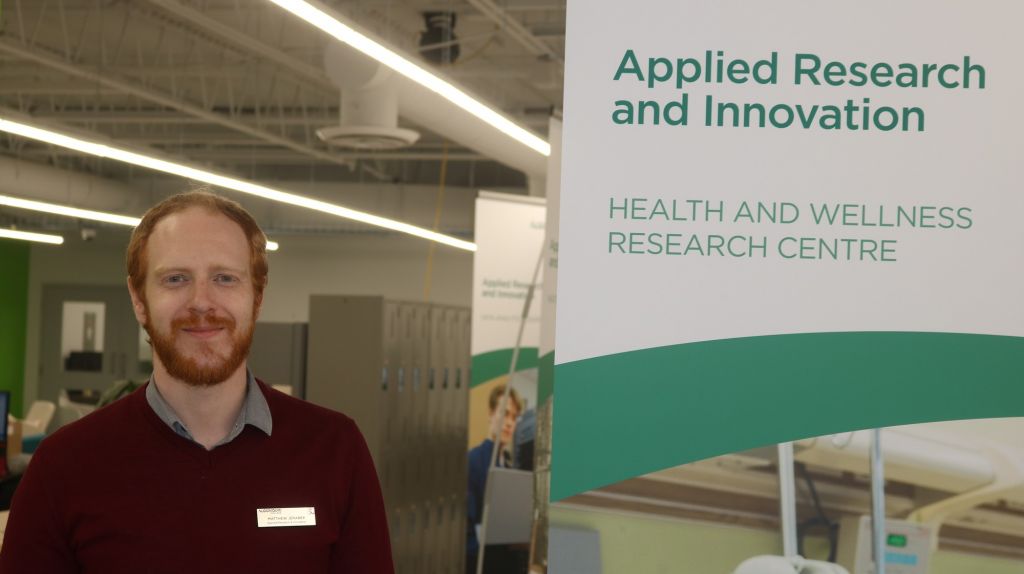Algonquin’s Applied Research and Innovation centre (ARI) is set to host its biggest annual showcase on April 13, this year for the first time under the name RE/ACTION.
The event will take place simultaneously at the student commons in E-building and at the gymnasium in A-building, and will feature the work of 75 applied research teams.
Slated for presentation are projects from a variety of industries ranging from biotechnology and app development to culinary and lifestyle.
In separate interviews with the Times, ARI impact coordinator Matthew Jerabek and managing director of the Department of Data Analytics Theodore Mirtchev both emphasized that the majority of projects have been under partial or complete non-disclosure agreements for the duration of their development, and so RE/ACTION would be the first time they would be shown to the public in any way.
A large portion of projects belongs to the category of robotics and artificial intelligence, with at least two teams introducing their work in self-driving cars technology.
A project under the provocative title Cerberus would demonstrate a robotic device designed to aid in the safe extraction of explosive devices. Another robotics team will be presenting a mechanical arm that assists in the manufacture of solar panels.
Among the projects with a lifestyle and food focus are such initiatives as designing state-of-the-art “smart homes” and perfecting the coffee-brewing process. RE/ACTION will feature many food-related products, including a chocolate-coating chip machine and a shawarma vending machine.
Many software products developed by Algonquin students will also be introduced at the event, mobile application design and development student Christian Jurt told the Times.
Among them are an app that helps divorcees stay on top of shared paperwork, another warning drivers of new pot-holes, a casting app for actors, and a “conversation bot” app which helps people with bipolar disorder by providing instant feedback in a therapeutic tone, while simultaneously forwarding relevant information to their mental health provider.
Jerabek, who is in charge of spearheading the public side of the event, emphasized that this isn’t just a tech exhibition. The event is heavily attended by industry members and client company representatives. Many professors and research workers from other school would also be on site.
SnapClarity CEO Terri Storey is confirmed as a keynote speaker at the event. SnapClarity is a private company that focuses on technological innovation in mental health services and research.
“It’s really a big networking event,” Jerabek said, describing RE/ACTION as a great opportunity for students to meet and interact with members of their target industries and promote themselves, adding that everyone should “bring a card.”
One of the great reasons to attend RE/ACTION is to be acquainted with the many faces of applied research, Jerabek stresses. In his opinion applied research is often associated with coding and “working on a computer” in the public mind, and he hopes to dispel that notion by getting attendees involved with the many hands-on opportunities presented at the event.


